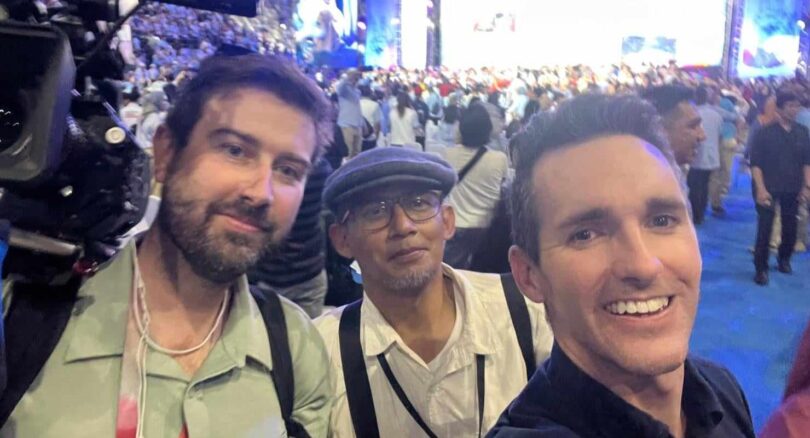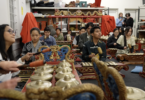Bill Birtles was Australian media’s last China correspondent. On September 1, 2020, the ABC journalist was hurried onto a flight from Beijing, bound for Sydney. From that point onwards, there’s been no Australian media presence in China.
“When I left … it was sort of a low point of recent diplomatic relations,” Bill tells me over Zoom, our second conversation. I admit I accidentally failed to record the first, and he laughs; he made the same mistake when first starting out. His accent is the kind you might harbour after many years in a foreign country – thickly Australian, as though proof.
“We were sort of just used as kind of pawns in a broader game,” he tells me. In 2020, Australia-China ties became frayed. A trade war erupted after Australia asked for an independent probe into the origins of COVID-19. China, emboldened by its economy (the second largest in the world), seemingly decided that we had more to lose than they had to gain.
Australia’s wine, barley, lobster and beef industries agreed. Diplomatic tensions have thawed under the Albanese government, and many tariffs have since been revised or cancelled. Still, foreign journalism remains one industry China seems uninterested in entertaining.
“I am surprised that we’re now sitting here in 2024 and there are still no Australian media outlets with accredited journalists in China,” Bill says. “I didn’t think it would quite take this long.”
“And they’re not just doing it to us. They, for example, have been basically stalling all new visas for US media outlets for the last few years.”
American journalists have described their news on China, reported from outside the country in places like Taiwan, as ‘disconnected’ and ‘sanitised’. “It’s not really worth it if we can’t be there,” one reporter said.
“China’s general culture of media access is incredibly restrictive and the level of separation that the government there designs between government people and media — but particularly foreign media — people is quite extraordinary and hard to imagine,” Bill says.
“I would have thought by the end of this year some journalists would be back… but I’m not so confident about that anymore.”
Levels of press freedom in China are infamously poor and the country consistently finds itself towards the bottom of Reporters Without Borders’ press freedom index. It may be true that Australian audiences have never expected more from the deeply sheltered state than abject political bias and self-serving rhetoric courtesy of the Chinese Communist Party (CCP).
To that end, it could be that the lack of on-the-ground Chinese news provided to Australian outlets has not been overly missed. Media consumers have turned away from information that is often viewed as wholly unreliable, regardless of source.
However, the utter lack of access now afforded to Australian journalists deepens dangerous suspicions of Chinese machinations that are already rife among an anxious public. It strips us of the vital stories of humanness that encourage empathy, cooperation and tolerance across often inconceivable cultural divides. For Australia and China’s relationship to flourish, the Australian public must see China as more than just some nebulous existential threat.
Now reporting from Jakarta as ABC’s Indonesia correspondent, Bill says the struggle is finding stories that are as relevant and interesting to Australian audiences as the ones he used to report on in China. For Bill, balance is important, as well as understanding that politics isn’t always about what is said on the record. “Some analysts say, not publicly, but they tend to say that a country like Indonesia doesn’t want China just completely to have its way in Asia. It sees the United States as a very important balancing power,” he says.
“I don’t think any country here [in Asia] really wants either the US or much more likely China, to completely have carte blanche in the region.” But as far as looking for stories goes, at least there’s always Bali. “Stories about Australians in Bali, in whatever way, still get way more ‘clicks’ and engagement,” Bill says. “But we always have to balance and do stories that are important — not just stories that will do well.”
The foreign correspondent position is important, with serious responsibilities not just to the country you’re reporting on behalf of but to the one you’re reporting from. And if anything is clear to Bill from his time in China, it’s a position that can, at any moment, become extinct on the heated winds of diplomacy.






